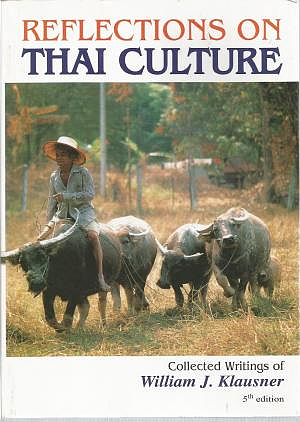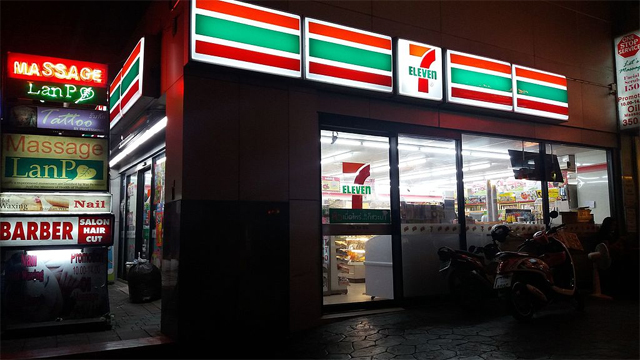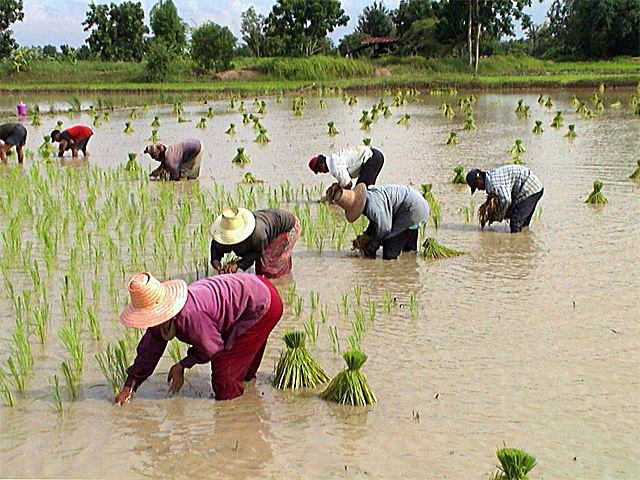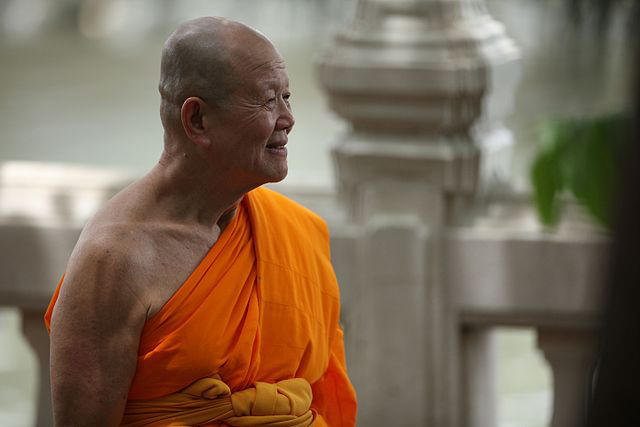Over the past 60 years, Rural Thai villagers have changed from poor, isolated farmers to relatively prosperous suburbanites who seek jobs, conveniences, income and connections. A feature article last week in the prominent Japanese business journal Nikkei Asian Review explored the dramatic changes that anthropologist William Klausner has witnessed in his 60 years of life in Nong Khon, a village in the northeast section of the country.

Nong Khon is located in Ubon Ratchathani province about eight miles northwest of the city of Ubon Ratchathani, one of the largest cities of the Northeast Region, which is also called Isan, or sometimes Isaan. The author of the article, Denis D. Gray, included many reminiscences of the changes witnessed by Klausner plus interviews with other residences of the village comparing life in Nong Khon today with 60 years ago.
When the young Klausner first went there in the mid-1950s, the adults were all rice farmers and the children were only able to get, at most, four year of schooling. It was a very poor farming community. Today, households in the village all own motor vehicles, many people own smart phones, and most youngsters hang out in video parlors. The village now has convenience stores, pizza delivery services, and ATM machines. Most young people, many of whom have graduated from universities, work in Bangkok or other cities. Unlike their rural forbears, the villagers are quite aware of political developments in the larger world.

Klausner, who married a villager during his first period of fieldwork in the mid-1950s, stayed in the community and made a career as a writer and an expert on rural Thailand. He told the journal, “Shadows of the past still exist, but there is a new game in town. The village is morphing into a semi-urban community with all its negative and positive aspects.”
Despite the fact that the gap between the rural northeast and the prosperous capital city has narrowed somewhat, some significant sparks of antipathy still mar rural/urban relationships. People in Isan think of the Thai who live in Bangkok as pampered members of a powerful elite who run the nation. Some citizens in the metropolis consider the people of Isan to be narrow-minded, uneducated provincials; sometimes they refer to them condescendingly as “buffaloes.”

When Klausner first went to Nong Khon, the people seemed to him to be docile—willing to give up their personal ambitions and rights in favor of others in the community. An elementary school principal in the village, Thatsanai Chainaen, confirmed his impressions. The principal said that people used to help one another with tasks such as planting rice. People depended on one another, but they don’t any longer because they all have mechanical devices to do the work. In the old days, people cooked foods to share with others, but no longer. “You go out and buy it at a 7-Eleven,” he said.
Luang Pu Wong, an 80-year old abbot at the main temple in the community, confirmed the opinions of the school principal about village life 60 years ago. “Despite being poor, what we had was a common spirit. We were slow in progress but strong in unity,” he said. They agreed that the young people of Nong Khon no longer have a sense of participation and sharing. The villagers used to resolve their conflicts through processes of compromise, aided by the elders, but now disputes over inheritances and land issues are commonly resolved through legal confrontations.

Community leaders and the anthropologist, however, resisted tendencies to romanticize the past. Farming work used to be back-breaking. People suffered from poor nutrition, they endured severe illnesses, and they were afraid to go to hospitals. People had died in the hospitals so they were filled with ghosts. But life in the village 60 years ago also had its rewards. There was no mass exodus of young people away from the community. Gambling and heavy drinking were rare and limited to festivals. Thefts were almost unknown and there were no walls between neighboring houses. Farmers helped one another at their work in the fields and people sat around in the evenings gossiping or telling stories.
Today, there are six convenience stores in the village plus an open-air coffee shop that serves espresso and “Scandinavian latte” to its customers, mostly teenagers. The village senior citizens are pessimistic, however, about whether their rural culture will survive. When they are gone, the younger people will sell their properties and move somewhere else, they feel.

And Luang Pu Wong, the elderly Buddhist monk, no longer has a role as mediator, adviser, teacher and judge. His work now is confined to religious practices and to helping people make proper ethical decisions. He decried the drinking and gambling that even takes place on the grounds of the monastery. “We have descended into the pits,” he complained.
The village shaman, Somphorn Labaap, who conducts semi-annual ceremonies at the village shrine to the ancestors, was similarly pessimistic about the Rural Thai today. He felt that the happiness of the villagers is artificial and transitory—it lasts only one night. “We are no longer a big, extended, warm family,” he told the journalist.